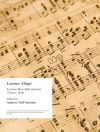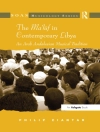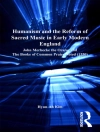Popular music in the twenty-first century is increasingly divided into niche markets. How do fans, musicians, and music industry executives define their markets’ boundaries? What happens when musicians cross those boundaries? What can Christian music teach us about commercial popular music? In God Rock, Inc., Andrew Mall considers the aesthetic, commercial, ethical, and social boundaries of Christian popular music, from the late 1960s, when it emerged, through the 2010s. Drawing on ethnographic research, historical archives, interviews with music industry executives, and critical analyses of recordings, concerts, and music festival performances, Mall explores the tensions that have shaped this evolving market and frames broader questions about commerce, ethics, resistance, and crossover in music that defines itself as outside the mainstream.
Inhaltsverzeichnis
List of Illustrations
Acknowledgments
Playlists
Introduction: Popular Music, Markets, Margins, and the Curious Case of Christian Music
PART ONE. CHRISTIAN MUSIC: AN INDUSTRY AND ITS HISTORY
1 ‚Why Should the Devil Have All the Good Music?‘ The Christian Market’s Origins
2 The Great Adventure: Commercial Success in the Christian Record Industry and the Price of Profit
3 A Wolf in Sheep’s Clothing? Christian Ethics Encounter Rock
4 ‚Find a Way‘: Amy Grant and the Christian Market’s Mainstream
PART TWO. NICHE MUSIC MARKETS: ETHICS, PROFITS, AND RISK
5 Music to Raise the Dead: Christian Music and the Ethics of Style
6 Lost in the Sound of Separation: Resistance at Christian Music Festivals
7 From Margins to Mainstreams and Back: Crossover Cases and Their Markets
Conclusion: The Stability of Risk and the Risk of Stability
Appendix 1. Discographies
Appendix 2. Pop Singles with Christian References (1957–70)
Appendix 3. Major Christian Record Labels and Subsidiaries
Appendix 4. Successful 1990s-Era Pop Singers‘ Albums
Notes
Bibliography
Index
Über den Autor
Andrew Mall is Assistant Professor of Music at Northeastern University and a coeditor of Studying Congregational Music: Key Issues, Methods, and Theoretical Perspectives.












